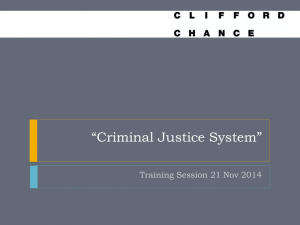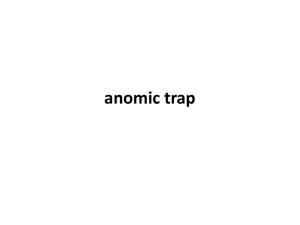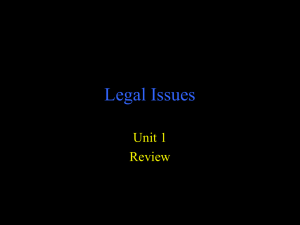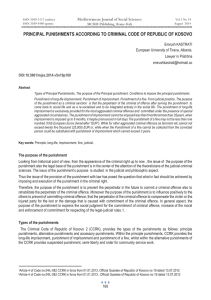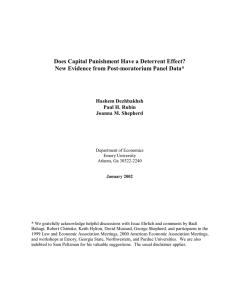Aug 19 2009
advertisement
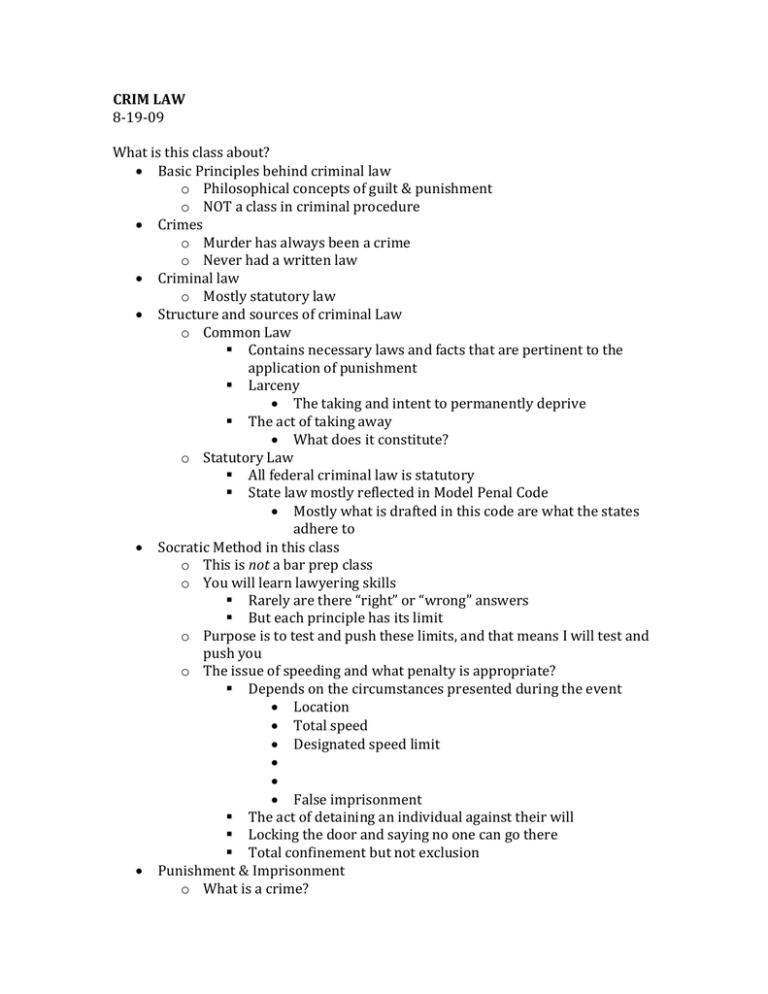
CRIM LAW 8-19-09 What is this class about? Basic Principles behind criminal law o Philosophical concepts of guilt & punishment o NOT a class in criminal procedure Crimes o Murder has always been a crime o Never had a written law Criminal law o Mostly statutory law Structure and sources of criminal Law o Common Law Contains necessary laws and facts that are pertinent to the application of punishment Larceny The taking and intent to permanently deprive The act of taking away What does it constitute? o Statutory Law All federal criminal law is statutory State law mostly reflected in Model Penal Code Mostly what is drafted in this code are what the states adhere to Socratic Method in this class o This is not a bar prep class o You will learn lawyering skills Rarely are there “right” or “wrong” answers But each principle has its limit o Purpose is to test and push these limits, and that means I will test and push you o The issue of speeding and what penalty is appropriate? Depends on the circumstances presented during the event Location Total speed Designated speed limit False imprisonment The act of detaining an individual against their will Locking the door and saying no one can go there Total confinement but not exclusion Punishment & Imprisonment o What is a crime? “what distinguishes a criminal from a civil sanction, is the judgment of community condemnation it is conduct which…will incur a formal and solemn pronouncement of the moral condemnation of the community.” anything that deprives society of life, liberty, or property o life- murder o liberty- false imprisonment o property- arson or theft o What are our rights for that we protect and cherish? Life, liberty, and property As prisoners Society deprives them of life, liberty, and property Utilitarian (for the greater good) o Deterrence Incentive driven by two variables Fear of punishment Enforcement Efficiency o Certainty and enforcement of getting caught and further conviction of crime This punishment is not effective if there isn’t a notification or communication to society Calculating Deterrence Tax evasion scheme to get $150,000 Fine if caught of $500,000 Probability of getting caught is 1/5 (20%) o Expected take $150K > Expected punishment $100K ($500K/5) o BUT if punishment is increased to $1,000.000, then E.T. $150K > EP $200K ($1M/5) o Incapacitation/Isolation Removes individual from society Community cannot worry or fear from potential threat of lurking predator o Rehabilitation To make them better o Education To teach society that it is bad to do this Wide exploitation of prosecution to open the eyes of society Prosecuting people for downloading music illegally o Retribution The idea that individual gets what she or he deserves “An eye for an eye” Punishment o Utiliatian- LOOKS FORWARD Deterrence Rehabilitation o Retribution- LOOKS BACKWARD o Where does the victim fit in? Alternative approaches o Retributive justice is alien in some other cultures and legal systems o “Restorative Justice” is an emerging principle, drawn from other legal cultures Story of Crow Dog Native committed murder of another tribal leader on Indian country where there was explicit tribal regulations o Restitution was enforced because tribal community came together and agreed on introversion and the giving of gifts for the act of murder The Anglo Saxons enforced the murder and tried him for murder o Jurisdiction clash Post-conflict justice Bosnia South Africa

